Travelling can be a daunting experience, especially for those with disabilities or mobility issues. However, special assistance is available to make flying easier and more comfortable.
Understanding your rights, what's available and how to book assistance can make a huge different your travel experience and comfort.
In this guide, I cover everything you need to know about booking special assistance for your flight, ensuring you feel confident and prepared for your journey.
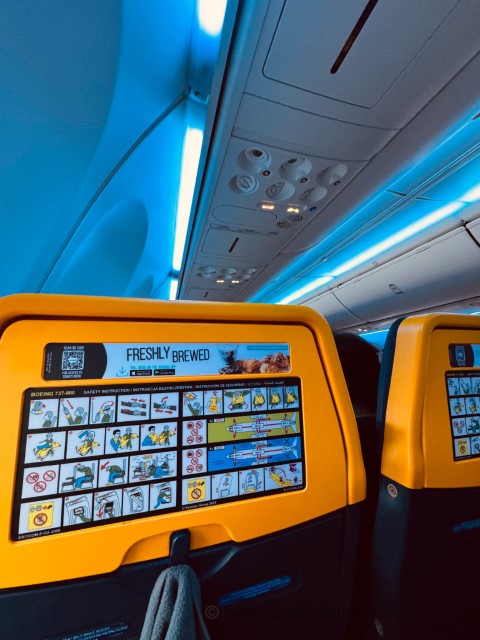
1. Understand Your Rights & Airline Responsibilities
Air Passenger Rights Explained
As a passenger, knowing your rights is essential. Because airlines usually won't tell you (or at least not in plain, simple terms that's easy to find).
So here are some key points regarding air passenger rights in the UK:
- UK law protects disabled travellers. This covers individuals with visible and hidden disabilities.
- Under the Equality Act 2010, airlines must provide reasonable assistance for disabled passengers and help you throughout your journey. This applies when:
- You fly on any airline from a UK airport
- You fly on an EU or UK registered airline to an UK airport
- You fly from outside of the UK or EU to the EU on a UK carrier
- Similar passenger rights apply in the EU and United States. Elsewhere, assistance may require a fee or not be available at all.
- Know your legal entitlements. The Civil Aviation Authority website is an excellent source of detailed information about what assistance you can access.
Airline Responsibilities: What to Expect
When you book a flight, airlines have specific responsibilities to ensure your comfort and safety:
- Help getting through the airport. Assistance includes navigating check-in and luggage drop, clearing security, at the boarding gate, passport control and transferring between flights.
- Support during boarding and disembarking. Staff are trained to assist you in getting on and off the aircraft. Specialist equipment may be available, such as lifts, ramps, and small transfer wheelchairs.
- Assistance on board. Airlines must provide appropriate seating arrangements based on your needs, accessible safety information and provide assistance to and from the toilet.
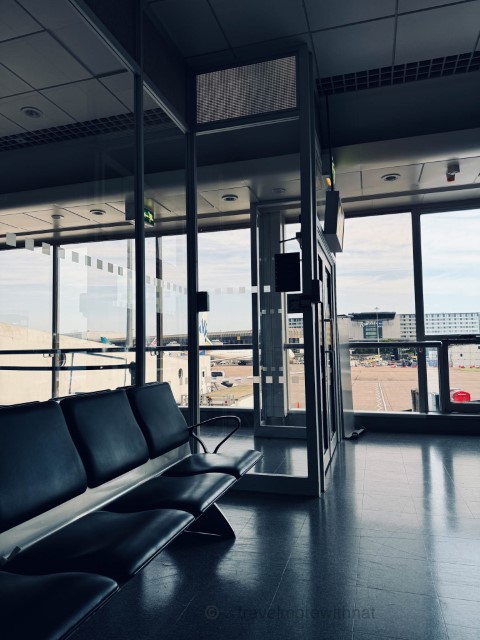
Statistics
Did you know that approximately 8% of passengers require some form of assistance when flying? So you're not alone, and shouldn't feel any awkwardness about requesting and accepting the help available to you.
2. Identifying Your Special Assistance Needs
Mobility Impairments
If you have mobility difficulties, it's crucial to communicate your specific needs to the airline. Consider the following:
- Requesting wheelchair assistance. Whether you bring your own wheelchair or need to use one provided at the airport, this service is there to help you navigate the airport more easily.
- Help with walking long distances. If you struggle with walking, request assistance at various points in the airport.
- Other mobility aids. Inform the airline if you require support for crutches, walkers, or other aids.
Visual & Hearing Impairments
For those with visual or hearing impairments, airlines offer tailored assistance:
- Assistance for visually impaired travellers. This may include guide services through the airport and on board.
- Support for hearing impaired passengers. Airlines can provide text communication or interpreters if needed.
- Communication tools and services. Ensure you inform the airline of your preferred method of communication. This is also important to ensure you can receive the safety briefing on board the aircraft, which is a requirement by law.
- Assistance dogs. Airlines must accept all trained assistance dogs for air travel without charge. Arrangements may vary, so check before booking and discuss this with the airline as soon as possible.
Medical Equipment & Support
Travelling with medical equipment requires careful planning:
- Travelling with medical equipment. Inform the airline about any equipment you need to bring. For wheelchairs, your airline may need to know the make, model, weight and size and details of how to assemble and disassemble it.
- You may carry up to two mobility items free of charge, but check if your airline has restrictions relating to equipment.
- Airlines are liable for damage to mobility equipment, but compensation may be limited to around £1,300 so consider extra insurance. If your equipment is damaged, the airport must provide a temporary alternative while yours is repaired or replaced, but not necessarily on a like for like basis.
- Oxygen and medication considerations.
Check your individual airline's policies on carriage of oxygen when you book your flight.Ensure you have all necessary medications and oxygen supplies with you. You'll need to bring a medical certificate if bringing large quantities of medication and/or more than 100ml of medicine in liquid or gel form at airports where liquid restrictions remain in force at security.
Other Needs & Support
For those with other conditions that require less complex arrangements, there are still options available to make travelling easier:
- Intellectual disability and neurodivergence. If you have specific needs related to these conditions, communicate them to the airline. When you book your flight and add special assistance, this is often indicated under 'PYM'.
- Hidden disabilities. If you don't require specific support, you can instead wear a sunflower lanyard. This discreetly tells airport and airline staff you may need additional time, patience or communication while you travel. It also allows you to access quieter security lanes, designated seating and quiet areas in the airport and board the plane first - if you wish to. More details about the sunflower scheme can be found here.
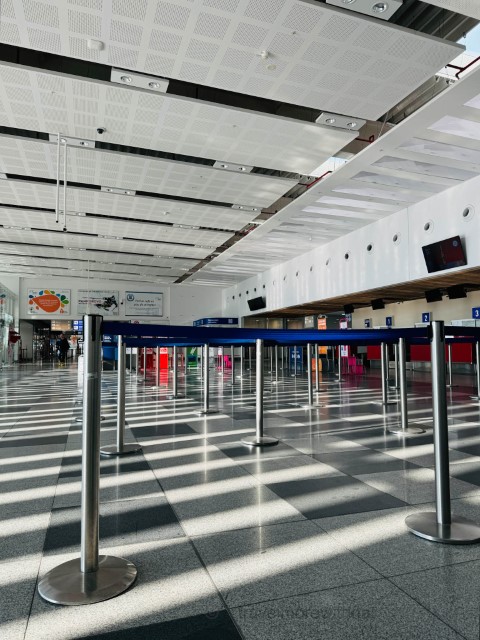
What Support Isn't Available
Airport and airline staff can't assist passengers with some needs. These include:
- Eating
- Drinking
- Taking medication
- Using the toilet
If you require this level of support, you'll need to arrange for a carer to travel with you.
3. When to Book
Giving Advance Notice
Giving adequate notice is crucial when booking special assistance. Here's what to do:
- Book assistance with your airline when you book your flight. Ideally, do this at the same time you book your flight if the option is available. For less complex needs, this can be the easiest way of requesting assistance without the need for additional communication.
- Request specific assistance no later than 48 hours before your flight. This ensures the airline has enough time to prepare for your specific needs. You can do this by contacting the airline (see section 6 below), or if you have booked through a tour operator you may need to make the request through them.
Consequences of Late Booking: What Could Happen
If you don't give advance notice, you may not receive the service that you need or may experience delays.
While staff will do what they can to help, this could cause stress and discomfort, depending on your disability and needs. So always communicate in plenty of time where possible.
4. How to Book Special Assistance: Step-By-Step
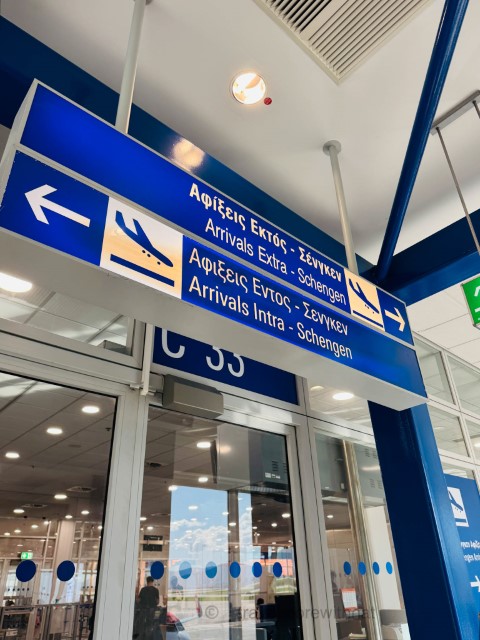
Booking special assistance is usually straightforward, once you know how. Here's how to do it with popular budget airlines:
Booking with Easyjet
- Select your flight times and fare.
- On the seat selection page, choose 'random seat selection'.
- On the passenger details page, click 'Request special assistance'.
- Select your disability type and confirm your request.
- For specific seating requirements, contact EasyJet by phone or email after booking. EasyJet will seat a companion with you free of charge, where possible.
Booking with Ryanair
- Select your flight times and fare.
- When adding passenger information, slide the box that says 'Need special assistance?'.
- A list will appear. Click the option that applies to you.
- Proceed to seat selection, where accessible seats are marked and are available free of charge to the passenger with the disability only. You'll need to pay the seat reservation fee for any additional passengers.
Booking with Wizz Air
- Select your flights and enter your passenger details.
- At this point, you'll see an option to add the special assistance type you require.
- You'll then be allocated free seats for you and a companion on the same booking.
Booking by Phone or Email after the Flight Is Booked: When to Call
If you need to book assistance after purchasing your flight, here's what to do:
- Complex requests or questions. If your requirements are specific and/or complex, it's best to speak with an airline customer services representative to ensure you'll receive the care you need.
- Contact the airline's assistance team. Use the dedicated phone number or email provided by the airline.
- Prepare key information beforehand. Have your booking reference and details about your needs and any equipment you'll need to travel with ready.
5. Navigating the Airport with Special Assistance
Arrival at the Airport:
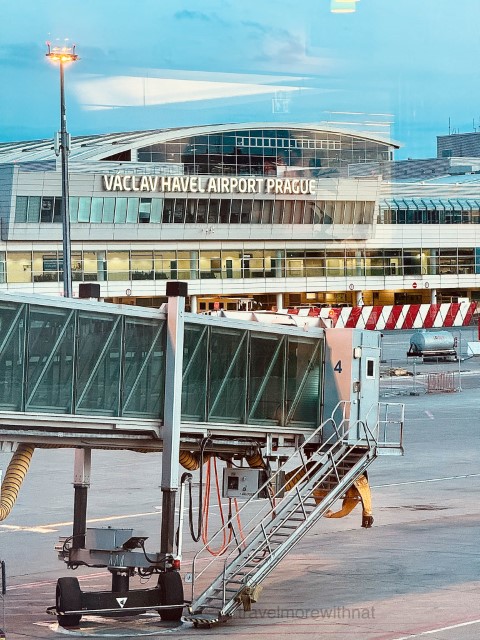
When you arrive at the airport, follow these steps:
- Arrive early. Allowing extra time can reduce stress and ensure everything runs smoothly.
- Locate the assistance desk. This is usually near the entrance or check-in area and should be clearly signposted. Some airports also have assistance points outside the terminal.
- Confirm your arrangements. Double-check that your assistance requests have been accurately noted.
- Use your equipment. If you bring your own wheelchair or electric mobility aid, you should be able to use it right to the departure gate.
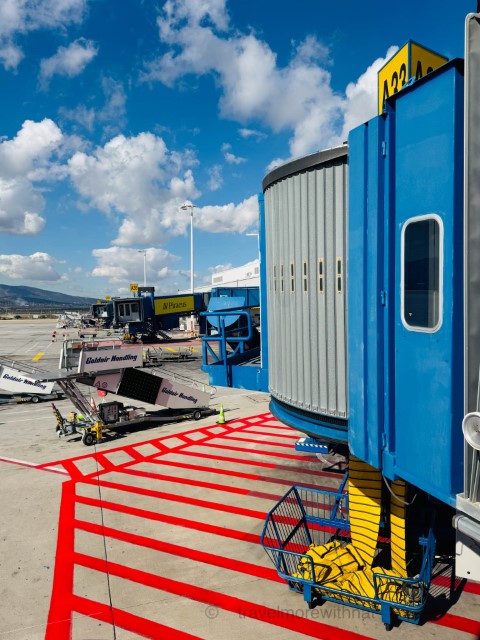
During the Flight:
While on board, here's how special assistance works:
- Boarding procedures. Airlines typically board passengers needing assistance first. Staff can help you to your seat and stow your carry-on bags, if needed.
- In-flight assistance. Cabin crew are trained and ready to help you during the flight.
- Deplaning assistance. Staff members will assist you in safely exiting the aircraft. On arrival, your wheelchair or mobility aid should be returned to you at the arrival gate.

After You Disembark:
After you leave the aircraft, you can continue to receive assistance with:
- Clearing passport control and customs
- Reclaiming any checked-in luggage
- Reaching the designated arrival point
- Transferring between flights if you have a connection
As mentioned above, the level of support available may depend on the country being visited.
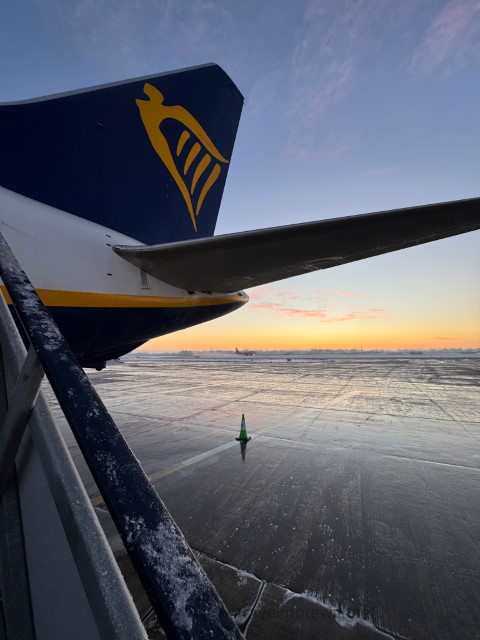
6. Facilities and Assistance Available with Top Uk Airlines and at Major Uk Airports
Each airline offers specific assistance services. Here are links to find more information as well as contact details:
Major UK airports also provide assistance services. Check their websites for details:
7. Tips for a Smooth Journey
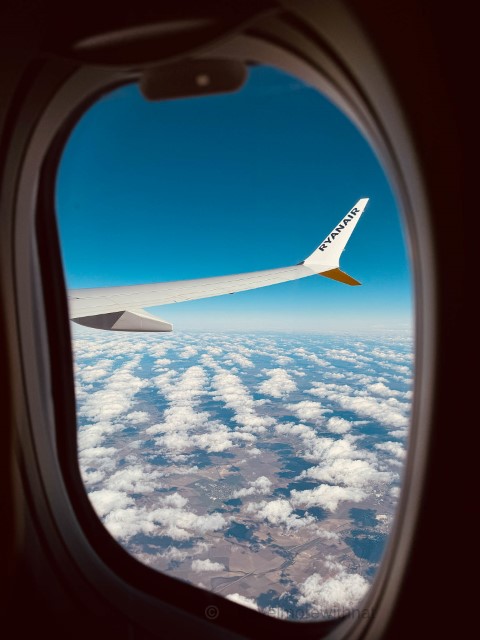
To ensure a hassle-free experience, consider these tips:
- Communicate clearly with staff. Let them know your needs and any specific requests ahead of time and on the day.
- Bring necessary documentation. Carry any relevant medical documents or proof of your disability. Bringing the manual for your wheelchair or other equipment can be helpful to airport and airline staff. For medication, bring proof of your prescription or a medical certificate.
- Pack essential items in your carry-on. Keep medications and other vital items, such as inhalers and epi-pens, easily accessible in your carry-on luggage
- Wear a sunflower lanyard. Discreetly signal that you may require additional support while travelling.
8. When Things Go Wrong
If something goes wrong, and you didn't receive the expected level of assistance and care while travelling, you should contact the airline in the first instance.
If you're not satisfied with the response, you can:
- Take your complaint to an Alternate Dispute Resolution (ADR) body
- Refer your complaint to the CAA
- Take direct legal action
You can read more about the special assistance complaints process and actions here on the CAA website.
Conclusion
Flying with special assistance is manageable with the right preparation. By knowing your rights, planning ahead and clearly communicating your needs, you can ensure a smoother journey.
Requesting assistance early reduces the risk of running into issues and can help you enjoy a more comfortable flight experience.
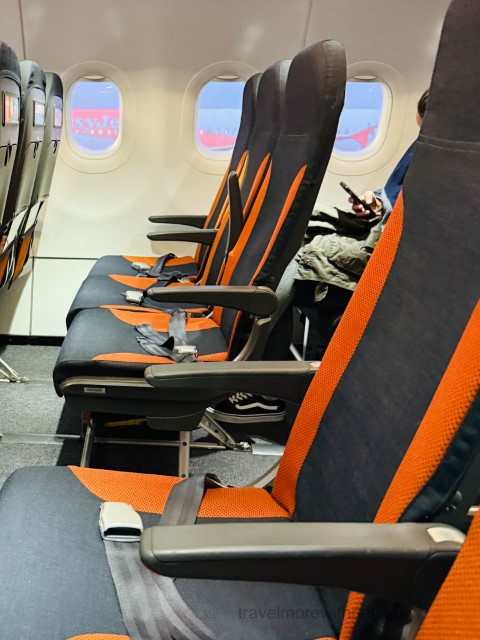
Remember, your comfort is important. So don't hesitate to ask for assistance when you need it.
Happy travels!













